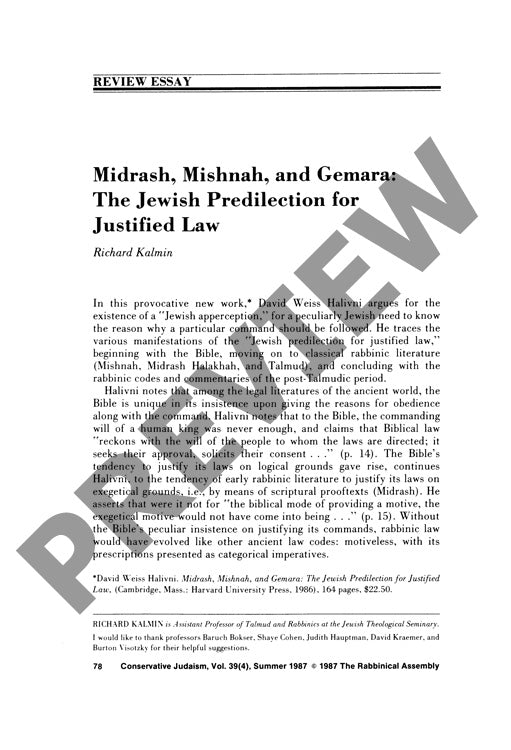Midrash Mishnah and Gemara the Jewish Pr
Couldn't load pickup availability
The quest to understand how Jewish legal literature evolved from biblical times through the post-Talmudic period reveals a distinctive cultural pattern - what David Weiss Halivni terms "Jewish apperception," or the persistent drive to provide rational justification for religious law. Halivni traces this intellectual tendency through three crucial phases: biblical texts that explicitly state the reasoning behind divine commands, the emergence of Midrash Halakhah with its scriptural prooftexts, and the stark departure represented by the apodictic Mishnah, which Halivni attributes to post-Temple destruction trauma. His analysis culminates with the Stammaim (anonymous Talmudic redactors), who he argues restored the traditional justificatory approach by preserving detailed legal argumentation. While Halivni's framework offers valuable insights into Talmudic redaction and the Stammaitic period, his historical claims raise methodological concerns, particularly his early dating of Midrash Halakhah to the second century B.C.E. and his tendency to equate "Jewish" with "rabbinic" perspectives. Despite these limitations in transitioning from textual exegesis to historical analysis, Halivni's bold synthesis significantly advances our understanding of Jewish legal development and will shape future scholarship in the field.

More Information
-
Physical Description
-
Publication Information
Published 1987
ISBN
-
Publication Credits
Richard Kalmin

